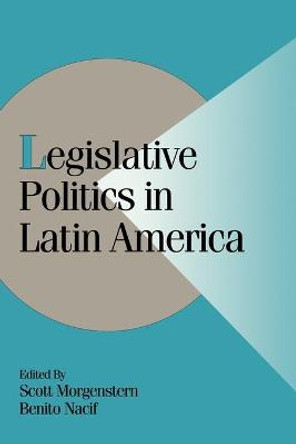Description
About the Author
Eduardo Aleman is an Associate Professor in the Department of Political Science at the University of Houston. He specializes in the comparative analysis of political institutions and Latin American politics. His research focuses on executive-legislative relations, legislative politics, and political parties. He has published articles in such journals as World Politics, Comparative Politics, Comparative Political Studies, Legislative Studies Quarterly, and Latin American Research Review. George Tsebelis is Anatol Rapoport Collegiate Professor of Political Science at the University of Michigan. He is a comparativist who specializes in political institutions. His works covers Western European countries and the European Union. His more recent work studies political institutions in Latin America and Eastern Europe. He is the author of four books: Nested Games (University of California Press, 1991), Bicameralism (coauthored with Jeanette Money, Cambridge University Press, 1997), Veto Players (Princeton University Press, 2002), and Reforming the European Union: Realizing the Impossible (coauthored with Daniel Finke, Thomas Koenig, and Sven Oliver Proksch, Princeton University Press, 2012). His work has appeared in numerous academic journals and has been reprinted and translated in several languages.
Reviews
By including in their theoretical model the ideological positions of partisan executive and legislative players, Aleman and Tsebelis significantly advance our understanding of lawmaking in Latin America. Rarely does an edited collection exhibit such consistency between the overall theoretical argument and the case chapters, and rarely are case chapters so rigorous. Barry Ames, Professor of Political Science, University of Pittsburgh The importance of agenda setting institutions for the functioning of democratic regimes cannot be overemphasized. This book shows how these institutions interact with the government's majority status and the actors' preferences to produce different patterns of policy-making. It shows that there are institutional and ideological conditions under which minority presidential governments can be legislatively successful, even if at times they cannot get exactly what they would have preferred. All chapters have completely moved away from the models that predicted the catastrophic failure of minority presidential democracies and demonstrate the multiple ways executive-legislative relations are shaped by the interaction between institutions and political conditions. In this sense, this book is a great example of how sophisticated research on Latin American presidentialism has become. Jose A. Cheibub, Professor of Political Science, University of Illinois at Urbana-Champaign Legislative Institutions and Agenda Control is a major theoretical and empirical contribution to the literatures on legislatures, legislative/executive relationships, and policy-making. Scott Mainwaring, Eugene and Helen Conley Professor of Political Science, University of Notre Dame
Book Information
ISBN 9780198777861
Author Eduardo Aleman
Format Hardback
Page Count 286
Imprint Oxford University Press
Publisher Oxford University Press
Weight(grams) 564g
Dimensions(mm) 241mm * 160mm * 20mm








